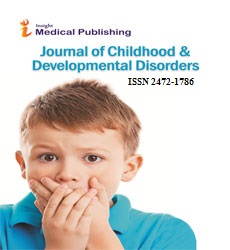A time for exceptional leadership: successfully integrating adults with autism spectrum disorders in the workplace
Amie D. Bowman
Indiana Wesleyan University, USA
Abstract
Our societies, already struggling with political complexities of employment, financial crisis, and migration issues, in the next decade will have to confront another challenge: how to employ and care for the wave of individuals with Autism Spectrum Disorders (ASD) about to enter adulthood. According to Autism Speaks’ 2017 report on Autism and Health, in the US alone 500,000 individuals with ASD will enter the workforce by 2027. Multiple studies have reviewed the experiences of individuals with ASD, coworkers, and family members to try and improve employment outcomes by identifying individual factors associated with successful transition to work, and research demonstrates that job activities that encourage and support independence reduce ASD symptoms and increase daily living skills in adults. However, most organizations, leaders, and organizational cultures are ill-prepared to integrate the coming influx of individuals with ASD into the workplace. Most organizational cultures and authority figures rely on social and communication skills to manage and lead teams, skills that individuals with ASD struggle to master. Compounding this issue, most leadership training programs and academic research into successful leadership practices emphasize relationship and communication skills as the primary skills of leadership, perpetuating the challenge for individuals with ASD. As the coming wave of individuals with ASD enter adulthood it will become increasingly important for leaders in communities, companies, governments, and organizations to understand and appreciate the differences in leading individuals with ASD versus their neurotypical peers. This presentation will discuss the challenges inherent in managing and leading individuals with ASD and provide ideas for training, resources, and areas of future research for successfully integrating individuals with ASD into the workplace.
Biography:
Ms. Bowman is working on her Ph.D in Organizational Leadership from Indiana Wesleyan University and holds a graduate certificate in Strategic Futures from the University of Houston. Her research focus is on the intersection of leadership, society, and change. Ms. Bowman is the mother of three sons, including an 18- year-old with low functioning Autism.
Speaker Publications:
1. “Bridge condition assessment using fuzzy weighted averages, Mar 1991.Source Research gate.
2. A naturalistic study of herbal medicine for self-reported depression and/or anxiety a protocol April 2019Integrative Medicine Research 8(2) DOI:10.1016/j.imr.2019.04.007.
3. Ensuring Food Safety: General Principles for Safeguarding What You Eat Including the Role of Food Labels
2nd European Autism Congress; February 28-29, 2020- Budapest, Hungary.
Abstract Citation:
Amie D. Bowman, A time for exceptional leadership: successfully integrating adults with autism spectrum disorders in the workplace, Autism 2020, 2nd European Autism Congress; February 28-29, 2020- Budapest, Hungary (https://autism.psychiatryconferences.com/abstract/2020/atime- for-exceptional-leadership-successfully-integrating-adultswith- autism-spectrum-disorders-in-the-workplace)
Open Access Journals
- Aquaculture & Veterinary Science
- Chemistry & Chemical Sciences
- Clinical Sciences
- Engineering
- General Science
- Genetics & Molecular Biology
- Health Care & Nursing
- Immunology & Microbiology
- Materials Science
- Mathematics & Physics
- Medical Sciences
- Neurology & Psychiatry
- Oncology & Cancer Science
- Pharmaceutical Sciences

